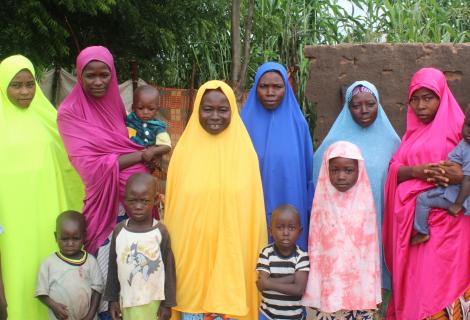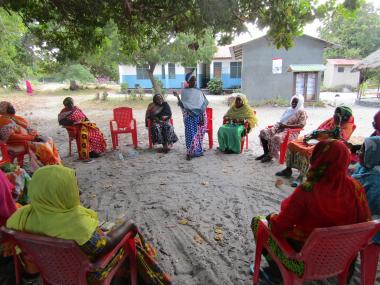Multilateral systems are under attack - they must be protected to safeguard our rights

By Mary Wandia, international policy advisor on civic participation at ActionAid International
Since the creation of the United Nations (UN) more than 75 years ago, civil society has worked alongside governments to craft multilateral frameworks and mechanisms for democratic governance and upholding human rights.
But now the ability of civil society to participate in international affairs at the highest levels is being constricted, largely due to an increasingly fragmented political, social, and economic world order. Multilateral systems are under attack from all sides, reducing participation of people and communities at the forefront of today’s interconnected crises, including climate change, Covid-19 and gender injustice.
Harris Gleckman described multilateralism as a global governance system that seeks to "bring together global actors that have a potential stake in an issue and ask them to collaboratively sort out a solution".
But far from achieving this ambition, recent research from ActionAid shows that states, anti-rights groups and corporate interests are undermining multilateralism by hampering democratic participation, transparency and accountability.
The Covid-19 pandemic has further highlighted and exacerbated barriers to participation in global governance mechanisms. This in turn is undermining the rights of women and young people, and restricting youth movements and citizens’ opportunities to engage politically and demand accountability from governments, corporations and non-state actors.
Disproportionate power wielded by wealthy nations perpetuates a colonial geopolitical system that undermines democratic multilateralism, national sovereignty, and international cooperation.
A very acute example, as The People’s Vaccine Alliance points out, is the refusal of some G7 countries to support a temporary waiver on intellectual property rights for Covid-19 vaccines. This decision exacerbates the rich/poor divide and needlessly prolongs a global health crisis. It also further shrinks opportunities for participation in global forums by preventing participation in multilateral spaces as borders are closed to un-vaccinated people.

The pandemic has also highlighted technical barriers to equitable global participation - forcing participants to go online for key UN meetings worsens existing power imbalances. Civil society and governments from the Global South with less, or less reliable, access to the internet are likely to miss key opportunities to engage and speak to global audiences.
Urgent systemic and structural transformation is needed to address multiple global and intersecting crises through international cooperation, solidarity and a multilateral system that safeguards democracy and human rights and preserves the dignity of individuals and communities, now and for future generations. Civil society, especially women and excluded people from the Global South, need to be part of framing and leading debates on this transformation.
We also need to protect and expand civic space at multilateral levels for strengthening and rebuilding democratic multilateral institutions and mechanisms, and ensure meaningful participation to address the inequities that disproportionately affect governments and civil society in the Global South. We must safeguard an environment in which civil society organisations, citizens, and people’s movements, particularly women, young people and people from marginalised communities, are considered valuable participants in sustainable development processes.